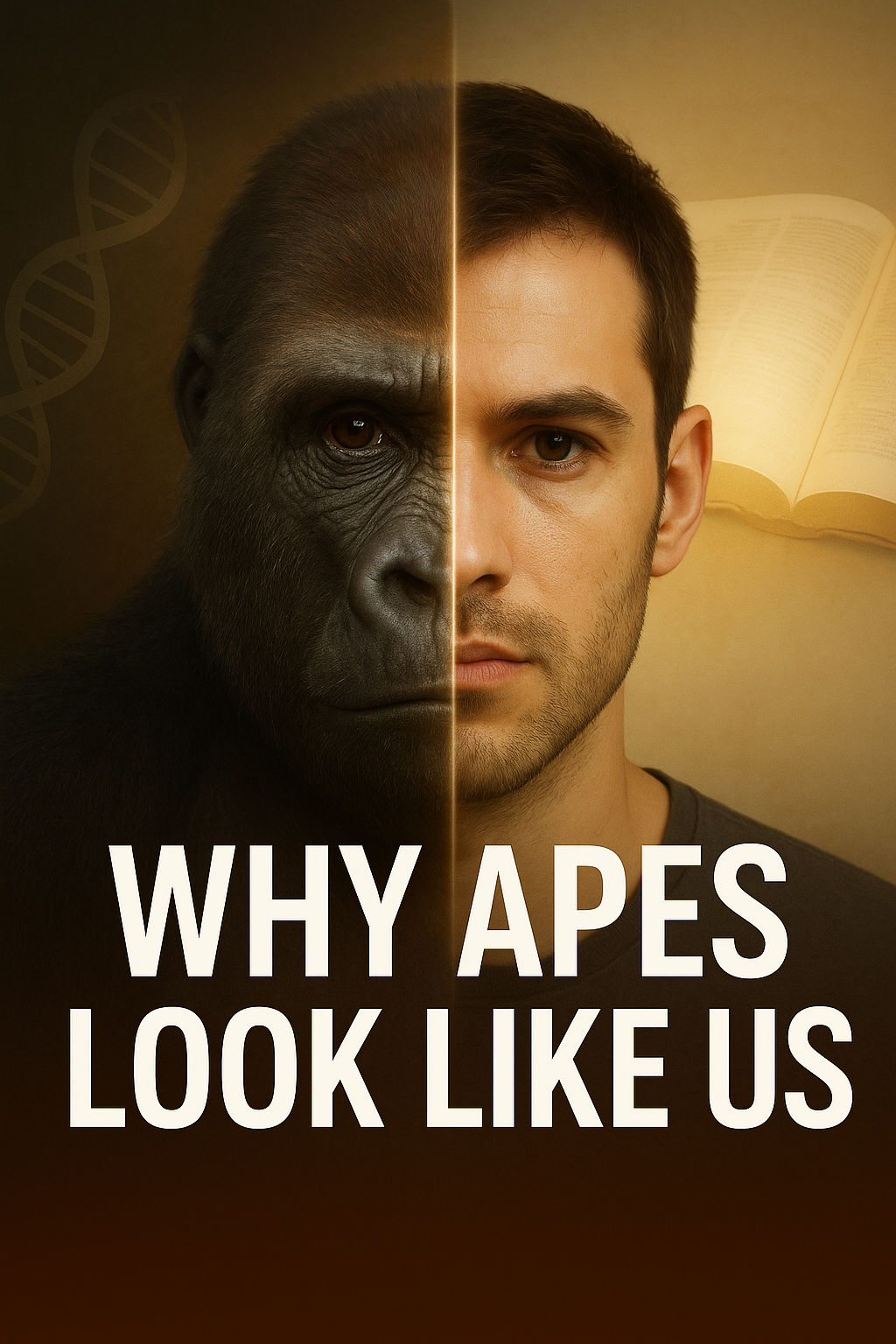Genesis, Gorillas, and the Question of Human Origins

The First Companions: Why Apes Look Like Us, Yet Are Not Us
One morning, while reflecting on Scripture, God brought something to my notice that I believe many Christians have overlooked.
When pastors teach about relationships, they often quote Genesis 2:18:
“It is not good that man should be alone; I will make him a helper comparable to him.”
From this, it is commonly concluded that man is incomplete without a woman. But if we look closely at the following verse, something interesting emerges.
Before Woman, God Gave Adam Animals
In Genesis 2:19, right after God declared it was not good for Adam to be alone, the Bible says:
“Out of the ground the LORD God formed every beast of the field and every bird of the air, and brought them to Adam to see what he would call them.”
Notice: God’s first response to Adam’s aloneness was not to create Eve immediately, but to bring animals as potential companions. It was only after Adam found no suitable helper among them that God formed the woman from his side.
This shows us something profound: animals were intentionally designed as companions for man; some more relatable than others.
Why Apes Resemble Humans
This observation sheds light on something evolutionists often point to: the striking similarity between humans and apes such as chimpanzees, bonobos, and gorillas.
Scientists explain this resemblance by saying humans and apes share a common ancestor millions of years ago. They don’t mean humans came directly from gorillas or chimpanzees, but that both species branched off from an earlier primate lineage.
From a biblical perspective, however, another explanation is possible: God deliberately designed certain animals with traits closer to humans because His first intention was to explore whether any of them could serve as companions for Adam.
So while evolutionists interpret similarity as evidence of ancestry, Scripture allows us to see it as intentional design for companionship.
Animals as Companions
We see this truth in daily life.
- A dog can grow so close to its owner that it understands moods, commands, and even subtle body language.
- Dolphins are widely recognized as highly intelligent, able to relate playfully with humans.
- A gorilla named Koko even learned hundreds of words in sign language, demonstrating remarkable communication skills.
God created animals with different levels of companionship ability, some able to connect more deeply with humans than others. Among them, apes were the closest match to us; yet still not enough.
The Divine Difference
Despite all these similarities, no animal could fill Adam’s void. That role could only be satisfied by Eve, who shared not just his body but also his spirit.
The reason is simple:
- Both humans and animals were formed from the dust of the ground.
- But only man was created in the image and likeness of God (Genesis 1:26–27).
This is the divine difference. Over thousands of years, humans have advanced in intelligence, creativity, and culture. Animals, however, have remained essentially within their created limits. Even the most intelligent ape has never built civilizations, written music, or worshipped God.
Give mankind another hundred million years, and we will continue to evolve in knowledge and ability - because the breath of God is in us. The chimpanzee will still remain a chimpanzee, because it was never made in God’s image.
Conclusion
Genesis reminds us that animals were God’s first attempt at companionship for man, and that explains why some resemble us so closely. But none could truly be a “helper comparable to him.” Only woman, taken from man and sharing his essence, could fill that role.
So while evolutionists see human–ape similarities as evidence of common ancestry, believers can recognize them as God’s deliberate design to reflect companionship but never equality.
The bottom line is this:
Animals may be friends, but only humans carry the image of God. And that makes all the difference.
My name is Gideon Grayson Akakporo. I am a Researcher, a Web Programmer, a LifeCode Strategist, and an Author

- Business
- Art
- Causes
- Crafts
- Dance
- Drinks
- Film
- Fitness
- Food
- Giochi
- Gardening
- Health
- Home
- Literature
- Music
- Networking
- Altre informazioni
- Party
- Religion
- Shopping
- Sports
- Theater
- Wellness
- Technology
- Cryptocurrency
- Psychology
- Internet
- Ecommerce
- Family
- Others
- Science


